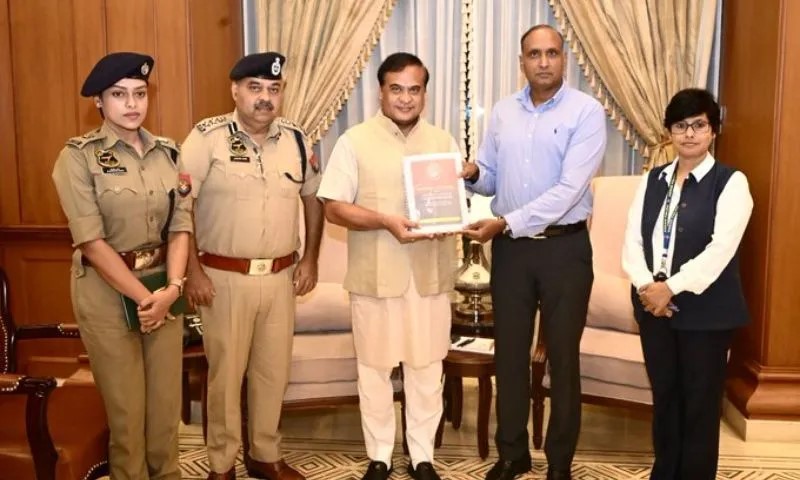
Assam SIT Probe Reveals Wider Conspiracy Involving Pakistani National: CM

 :
| Updated On: 11-Sep-2025 @ 11:41 am
:
| Updated On: 11-Sep-2025 @ 11:41 amSHARE
On Monday, Assam Chief Minister Himanta Biswa Sarma revealed the findings of a Special Investigation Team (SIT) that had been constituted by the state cabinet earlier this year. The SIT, formed on February 17, 2025, was tasked with probing alleged anti-India activities involving Pakistani national Ali Tauqeer Sheikh and his associates. In a statement posted on X (formerly Twitter), Sarma said the investigation has unearthed startling evidence that points to a much larger conspiracy designed to undermine the sovereignty and stability of India.
According to Sarma, the probe has gone beyond the activities of Sheikh alone and has identified a broader network of individuals and actors involved in the alleged conspiracy. Most notably, the SIT has established the role of a British national connected to Sheikh’s operations. This British citizen is reported to be married to an Indian Member of Parliament, which has raised significant political and security concerns. Sarma claimed that this foreign individual was actively engaged in the “larger nefarious activities” being carried out by Sheikh, thus extending the scope of the alleged conspiracy beyond Pakistan and into Western connections with direct ties to Indian politics.
In addition to this, the investigation has reportedly uncovered evidence linking the Pakistani government directly to some of these developments. Sarma alleged that the Ministry of Interior of Pakistan played an active role in facilitating the visit of a Member of Parliament from Assam to Pakistan. While Sarma did not disclose the identity of the MP in his statement, the claim that an elected Indian representative’s travel was assisted by Pakistan’s interior ministry has added another layer of seriousness to the findings. This revelation suggests that the conspiracy may not only be about individual actors but could also involve formal support from foreign state institutions.
The Chief Minister emphasized that these findings represent a grave threat to India’s sovereignty, underscoring that foreign nationals and governments may be working to destabilize the country’s democratic and political framework. He described the SIT’s discoveries as “startling facts” that highlight the scale and depth of the conspiracy. The links between Sheikh, his associates, foreign nationals, and possibly elements within Pakistan’s government suggest that the network may have been operating with greater reach and coordination than initially suspected.
Sarma added that the SIT’s report will now undergo a thorough review before it is officially presented to the state cabinet for deliberation. He explained that the state government intends to study the findings carefully to ensure that appropriate actions are taken. Only after the cabinet has discussed the matter in detail will the gathered information be made public. This step, he said, is necessary to maintain transparency while also ensuring that sensitive information is handled with the seriousness it requires.
The Chief Minister’s announcement has sparked public and political interest, given the high-profile names and international linkages involved. While specific details regarding the extent of the conspiracy, the role of the British national, and the identity of the Assam MP remain undisclosed, Sarma’s statement has set the stage for further debate and scrutiny. The SIT’s report, once made public, is expected to shed more light on the alleged network and its implications for both Assam and India’s national security.
In conclusion, the SIT’s investigation, launched in February 2025, has uncovered what appears to be a wide-ranging conspiracy involving Pakistani national Ali Tauqeer Sheikh, a British national married to an Indian MP, and even alleged facilitation by Pakistan’s Ministry of Interior. These revelations point to a coordinated effort aimed at destabilizing India. The state government has promised a detailed review and cabinet-level discussion before disclosing the full report to the public.